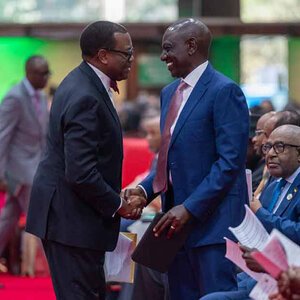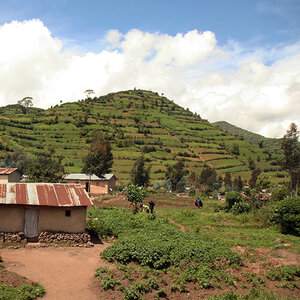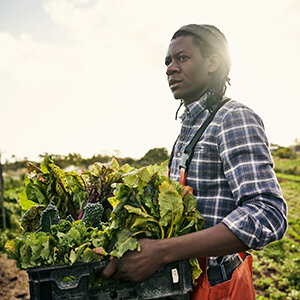At Africa summit, a focus on land restoration, clean energy, financing

Conservation International and Peace Parks Foundation have announced a five-year, $150 million multi-donor commitment for land restoration across Africa. The announcement during the Africa Climate Summit in Nairobi, Kenya, came as African leaders announced new initiatives and urgently called for the global community to meet earlier commitments to address climate change across the continent.
The land restoration initiative—a collaboration with Indigenous pastoralists, civil society organizations, and the private sector—aims to restore 20 million hectares (77,000 square miles) of degraded grasslands, savannah, and shrublands by bringing to scale the Herding for Health (H4H) model developed by Peace Parks. The project is funded with support from the governments of Angola, Botswana, Kenya, Madagascar, Mozambique, South Africa, Zambia, and Zimbabwe as well as other partners and donors.
At the summit, African leaders called on wealthy nations to meet their commitments to provide $100 billion annually in climate change finance, noting that although sub-Saharan African countries had debts totaling an estimated at $1.1 trillion in 2022, the continent received only 4.5 percent ($33 billion) of the International Monetary Fund’s special drawing rights (SDR) assets.
The African Development Bank (ADB) has launched the African Adaptation Acceleration Program, providing $25 billion toward climate financing by 2025 and is implementing its a $20 billion Desert to Power initiative to deliver solar-powered electricity to 250 million people. The Abu Dhabi Fund for Development, Etihad Credit Insurance, Masdar, AMEA Power and Africa50 will partner to develop 15 gigawatts of clean power by 2030 by investing $4.5 billion, which will catalyze $12.5 billion from multilateral public and private sources. In addition, the United States has pledged $3 billion annually in support of the $12 billion program and an additional $30 million to bolster climate resilient food security efforts across Africa.
Other initiatives include the launch of the African School of Regulation—headquartered in Ghana and supported by the African Capacity Building Foundation—to serve as a hub for knowledge exchange and training that helps scale much-needed investment to develop affordable, reliable, and sustainable energy systems on the continent, and a partnership between the Glasgow Financial Alliance for Net Zero (GFANZ) and ADB to accelerate climate finance for low carbon investments across Africa, including a revaluing of the continent’s wealth through the proper valuation of its natural resources and vast forests that sequester carbon.
“Africa must develop its own carbon markets, properly price its carbon, and turn its vast carbon sink into new sources of enormous wealth," said ADB president Akinwumi A. Adesina. “Africa cannot be nature rich and cash poor.”
(Photo credit: Africa Development Bank)








